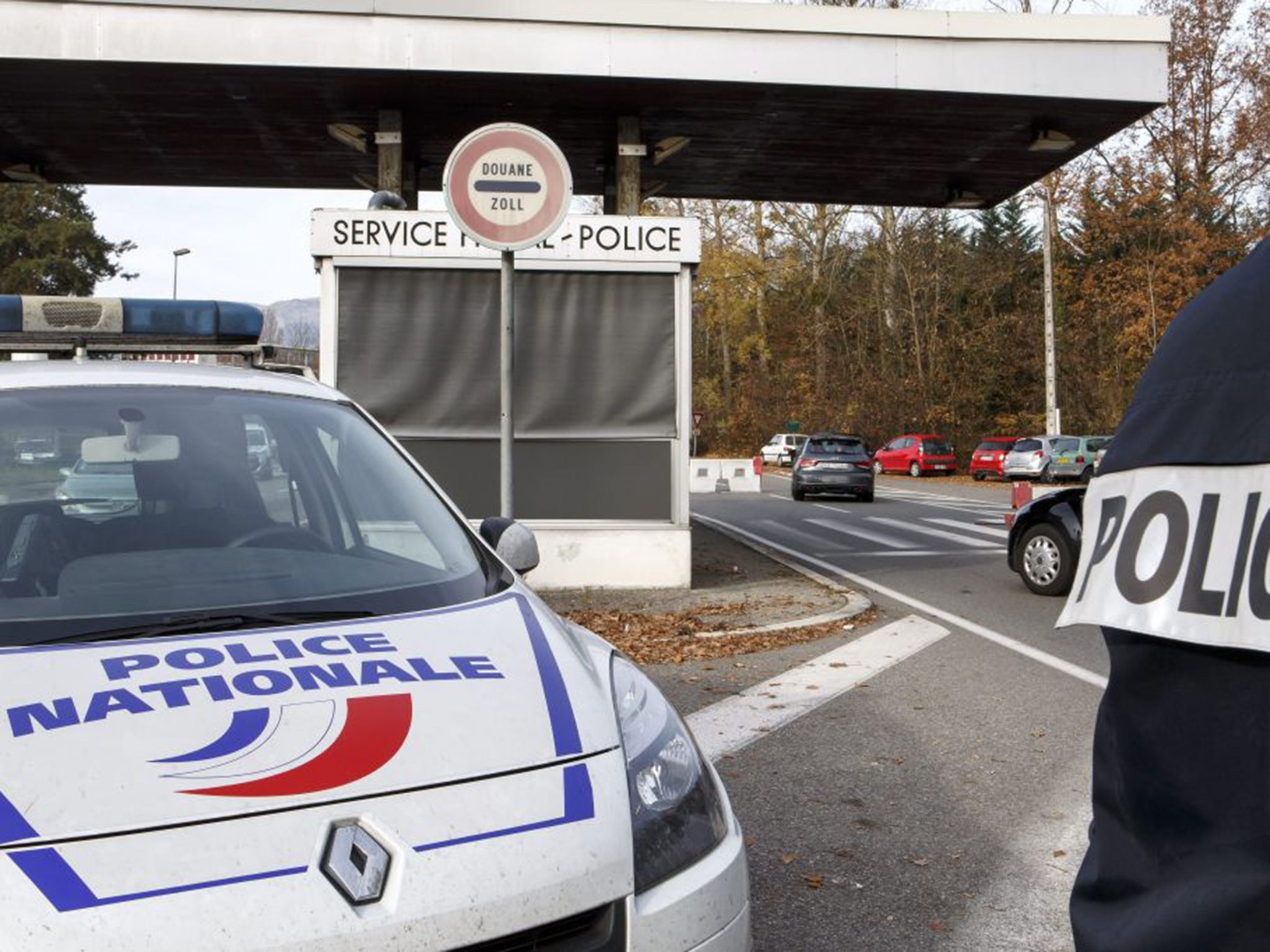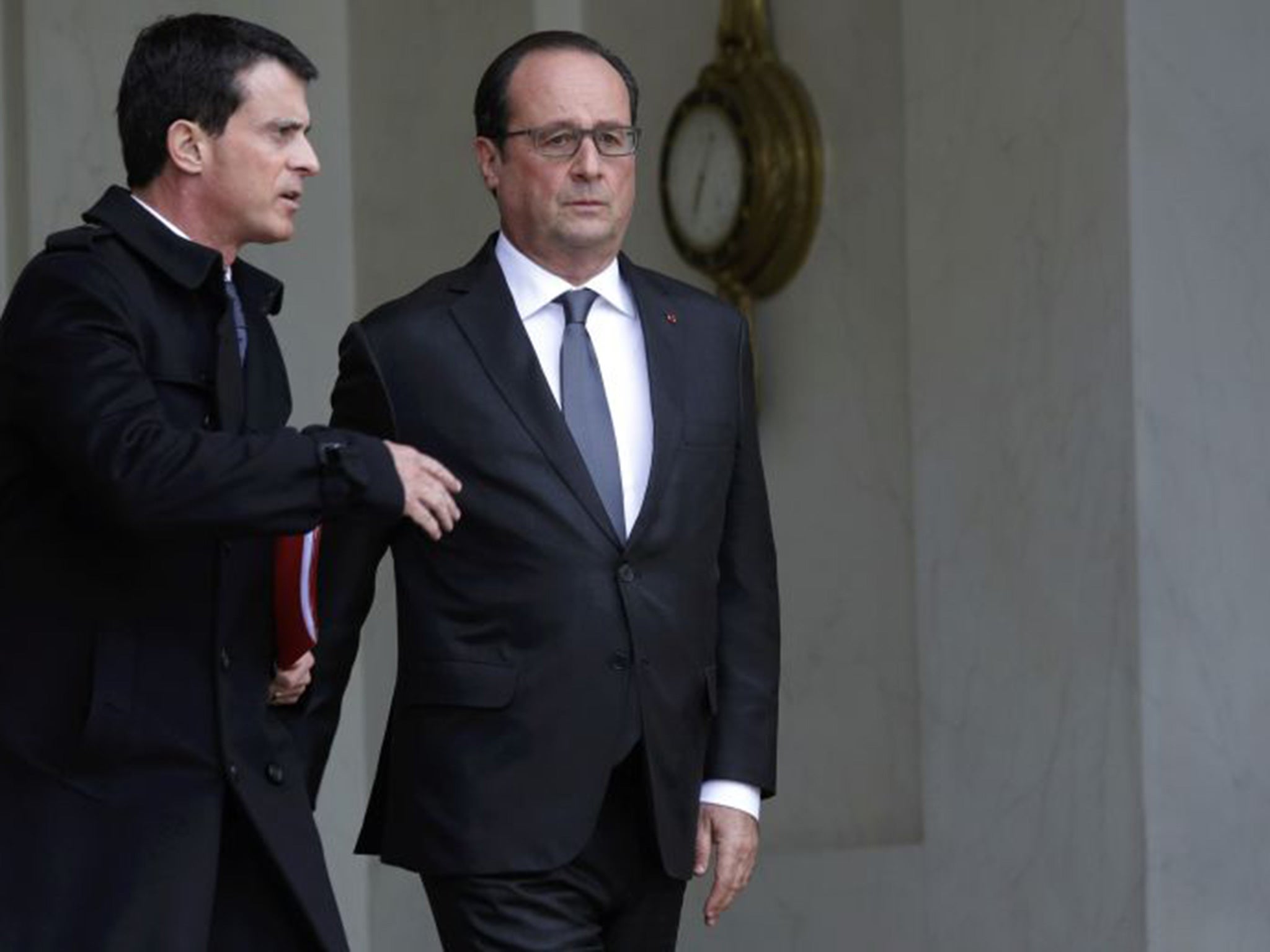Paris attack: Isis atrocity leads to tighter border controls across European Union
The target was France, but the impact of the attack is being felt throughout the continent

Your support helps us to tell the story
From reproductive rights to climate change to Big Tech, The Independent is on the ground when the story is developing. Whether it's investigating the financials of Elon Musk's pro-Trump PAC or producing our latest documentary, 'The A Word', which shines a light on the American women fighting for reproductive rights, we know how important it is to parse out the facts from the messaging.
At such a critical moment in US history, we need reporters on the ground. Your donation allows us to keep sending journalists to speak to both sides of the story.
The Independent is trusted by Americans across the entire political spectrum. And unlike many other quality news outlets, we choose not to lock Americans out of our reporting and analysis with paywalls. We believe quality journalism should be available to everyone, paid for by those who can afford it.
Your support makes all the difference.The attacks on 13 November by so-called Islamic State unfolded in central Paris, but they were aimed at all of France – and their impact will be felt across the whole of Europe. François Hollande said that he was declaring war against the militants of IS, but in fact France’s effort against Islamic extremism has been under way for years.
A number of European Union countries also indicated that they would impose restrictions on the Schengen Agreement, which guarantees free movement across most of the bloc and which many on the right hold is a threat to the safety of the continent.
France has been at the vanguard of the battle against militant Islamism for several years. Despite sitting out the Iraq war in 2003, Paris has this year taken part in bombing raids on militant targets in Iraq and Syria, the latter still being a step too far for Britain.
Paris also joined air strikes against Gaddafi’s forces in Libya in 2011, and almost unilaterally took on al-Qaeda-linked groups in Mali two years later. Recent French foreign policy has been lauded in some quarters for its directness, but for IS and its sympathisers it has made France an obvious target.
The attacks were designed “to teach France, and all nations following its path, that they will remain at the top of [Isis’s] list of targets, and that the smell of death won’t leave their noses as long as they partake in their crusader campaign”, Isis said in a statement when taking responsibility for the attacks.
Mr Hollande has used foreign policy as a way of demonstrating France’s strength, but at home his ratings have plunged as domestic problems mounted. “Faced with war, the country must take appropriate action,” he said. “When terrorists are capable of committing such atrocities, they must be certain that they are facing a determined France, a united France.”
Marine Le Pen, the leader of the far right Front National, has constantly referred to what she describes as the dangers of migration. She suspended campaigning for local elections in the south of France on 14 November. A security guard at Paris’s Gare du Nord station told The Independent on Sunday that the attacks would play into her hands, and that she would “only be strengthened by what has happened here”.
After Mr Hollande declared a state of emergency on late on 13 November and promised to close France’s borders, other EU countries reacted by tightening their own security measures. Belgium imposed controls on its borders, particularly those it shares with France. It was revealed that a car with Belgian number plates was being sought by French police. Meanwhile the Dutch PM, Mark Rutte, said his government would increase border controls.

The hand of those pushing for more restrictions will no doubt be strengthened by the news that a Syrian passport was said to have been found on the body of one of the suicide attackers near the Stade de France.
In Germany, Markus Söder, the Bavarian government’s finance minister, said “the days of unchecked immigration and illegal entry can’t continue. Paris changes everything”.
Meanwhile the Bavarian premier, Horst Seehofer, said that there were “reasonable grounds” to suspect that there was a link between the Paris attacks and the arrest of a 51-year-old man on 5 November on the German-Austrian border. Police are understood to have uncovered firearms, explosives and hand grenades during the arrest.
Some communities in France have already said that they fear a backlash in the wake of the attacks. Nadir Kahia of the of the largely Muslim Banlieue Plus community association told the Associated Press that its members were shocked and felt a sense of solidarity, “but we know … some Muslims and poor neighbourhoods” would be subjected to a retribution.
France’s foreign minister, Laurent Fabius, travelled as planned to Vienna on 14 November for multilateral talks on the Syrian war.
“Without a doubt, what happened in Paris last night, cannot fail to affect the present atmosphere, and the negotiation process,” said Maria Zakharova, a spokesperson for the Russian foreign ministry.
Mr Fabuis’s cabinet colleague, the interior minister Bernard Cazeneuve, banned public demonstrations until 19 November.
Join our commenting forum
Join thought-provoking conversations, follow other Independent readers and see their replies
Comments